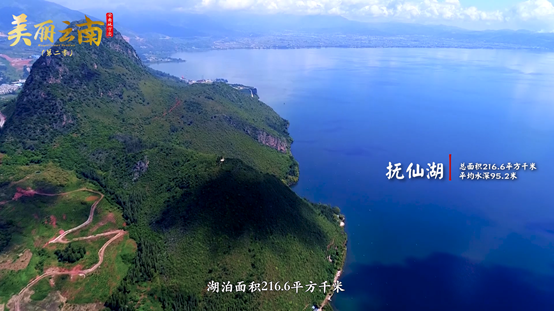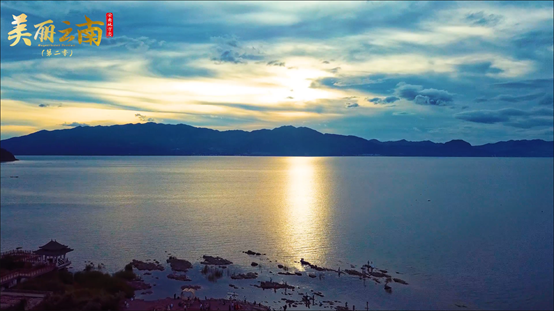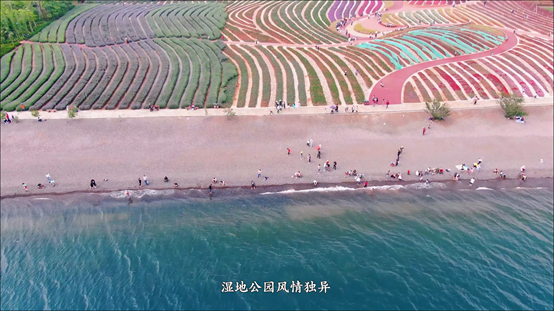
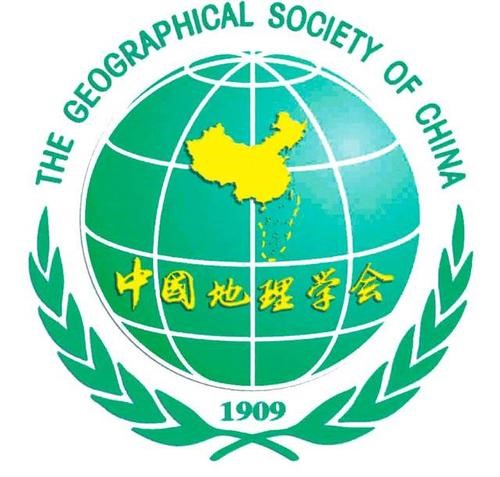



Call for Participation: The 4th Workshop of Asian Young Geographers
November 29th-December 2nd, 2024





Call for Participation: The 4th Workshop of Asian Young Geographers
November 29th-December 2nd, 2024
As global climate change and environmental challenge become increasingly severe, Asia, the most populous and geographically diverse continent in the world, is facing unprecedented challenges in its geographical characteristics and evolutionary trends. The natural geographical landscape, ecological environment, and socio-economic development of Asia are all deeply influenced by global change. These changes not only concern the well-being of the people in Asian countries but also have profound impacts on global sustainable development.
Co-organized by Young Geographer Working Group of Asian Geographical Association (AGA-YGWG) and Yuxi Normal University, the 4th Workshop of Asian Young Geographers will be held during November 29th-December 2nd 2024 in Yuxi City, Yunnan Province, China. The upcoming workshop themed "Geography of Asia under Global Change" will delve into the impacts of global change on Asia's physical geography, human geography, geographical science and environment science. The workshop will gather young scholars from various fields of geography to share research outcomes and experiences, providing scientific references and policy support for Asia and the world to explore coping strategies and sustainable development paths aiming at addressing global change challenges.
The workshop program will be formally announced in few weeks. Young researchers, scholars and graduate students in global geography and related disciplines are welcome to participate and present their cutting-edge research outcomes.
Geography of Asia under Global Change
Academic Committee
Organizing Committee
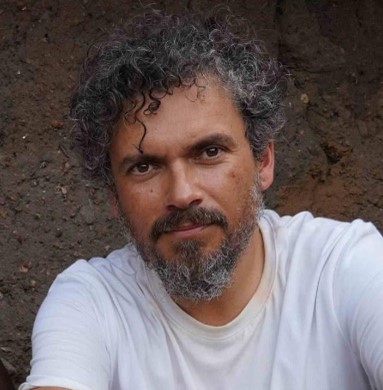
Mr. Paco Acedo
Explorer, Documentary Marker, Spain
Member, Sociedad Geográfica Española
Title of presentation: Writing Your Own History. Curiosity as the Only Reason to Explore

Prof. Guanpeng Dong
Professor, Henan University, China
Deputy Director, Key Research Institute of Yellow River Civilization and Sustainable Development
Title of presentation: Spatially Explicit Climate Econometric Model
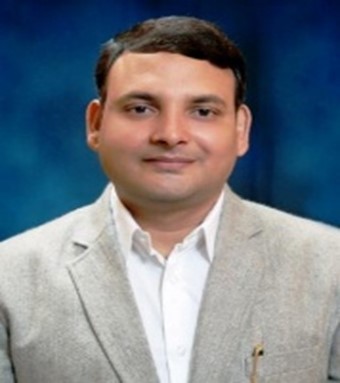
Dr. Prabuddh Kumar Mishra
Assistant Professor, Shivaji College, University of Delhi, India
Joint Secretary, National Association of Geographers, India
JTitle of presentation: Multiple Perspectives of Natural Resource Conservation in the Himalayan Region

Prof. Maria Paradiso
Professor, Professor, University of Naples Federico II, Italy
Vice President, International Geographical Union
Title of presentation: Are you a geographer? Find your place in Geography!

Prof. Antonio Paez
Professor, McMaster University, Canada
Editors-in-Chief, Journal of Geographical System
Title of presentation: Opening Geographical Sciences

Prof. Chenghu Zhou
Academician, Chinese Academy of Sciences, China
Professor, Institute of Geographic Sciences and Natural Resources Research, CAS
Title of presentation: (to be confirmed)
Chairs: Prof. Shaoyao Zhang Prof. Ligang Lv Prof. Jing Liu Dr. Junxiao Wang
Affiliation: Faculty Geography Resource Sciences, Sichuan Normal University School of Public Administration, Nanjing University of Finance & Economics School of Public Policy and Management, China University of Mining and Technology School of Public Administration, Nanjing University of Finance & Economics
Email: zhangsyxs@sicnu.edu.cn liganglv@nufe.edu.cn liujing1212@cumt.edu.cn wangjunxiao@nufe.edu.cn
Introduction:
In the context of globalization, the rapidly developing socio-ecological systems in Asia are undergoing transformation and adjustment. As a result, the optimization of territorial space has become a strategic tool for nations and regions to enhance their competitiveness and achieve sustainable development goals (SDGs). Rapid urbanization and demographic shifts have led to pressing demands for more efficient land use and spatial planning to ensure sustainable urban growth and rural vitality. Emerging technologies like GIS, big data, and AI offer new opportunities for smart territorial space management, enabling more precise and effective landscape planning. By optimizing territorial space patterns, we can foster sustainable resource utilization, improvement land multi-functions, and support a harmonious coexistence between human activities and natural environments. This session aims to gather young scholars and experts in land development, urban planning, environmental science, and related geography fields to explore innovative strategies and methodologies for optimizing territorial space patterns. It will focus on how to enhance land use efficiency, promote SDGs, and improve the quality of life through landscape planning and policy implementation. The session will also address challenges such as urban sprawl, environmental degradation, and the impact of global changes on territorial space management.Chairs: Prof. Antonio Paez Dr. Anastasia Soukhov
Affiliation: School of Earth, Environment and Society, McMaster University, Canada School of Earth, Environment and Society, McMaster University, Canada
Email: paezha@mcmaster.ca soukhoa@mcmaster.ca
Introduction:
Accessibility measures are widely used to summarize the ease of reaching potential destinations. As such, they combine, into a single summary measure, properties of the land use system, on the one hand, and the transportation system and travel behavior on the other. Defined as the weighted sum of the opportunities that can be reached given the cost of movement, accessibility is used in transportation planning, health planning, economic analysis, etc. This workshop introduces spatial availability. Much like accessibility, spatial availability measures the ease of reaching potential destinations. However, unlike accessibility, it makes opportunities available uniquely to members of the population. For example, a job, once it is available to someone, it is no longer available to somebody else. In effect, spatial availability is a singly-constrained accessibility measure that preserves the number of opportunities.Accessibility measures are widely used to summarize the ease of reaching potential destinations. As such, they combine, into a single summary measure, properties of the land use system, on the one hand, and the transportation system and travel behavior on the other. Defined as the weighted sum of the opportunities that can be reached given the cost of movement, accessibility is used in transportation planning, health planning, economic analysis, etc. This workshop introduces spatial availability. Much like accessibility, spatial availability measures the ease of reaching potential destinations. However, unlike accessibility, it makes opportunities available uniquely to members of the population. For example, a job, once it is available to someone, it is no longer available to somebody else. In effect, spatial availability is a singly-constrained accessibility measure that preserves the number of opportunities.Chair: Prof. Md. Nurul Islam
Affiliation:
Department of Geography & Environment, Jahangirnagar University; Secretary General; Bangladesh national Geographical Association (BNGA)
Chairs: Dr. Sawaid Abba Dr. Rui Zhu
Affiliation: Centre for Geographical Information System, University of the Punjab, Lahore, Pakistan. Scientist, Systems Science Department Institute of High-Performance Computing (IHPC), Singapore
Introduction:
This session aims to explore the multifaceted and interconnected phenomena contributing to the increasing temperatures across Asia. With rapid urbanization, extensive land cover changes, and global warming, Asia faces unique challenges related to Urban Heat Island and heat waves. The session will explore the causes, effects, and mitigation strategies for heat waves, urban heat islands (UHI), and other heat-related issues. We will examine case studies, research findings, and innovative solutions to address these challenges, cultivating a deeper understanding and collaborative efforts to combat the adverse impacts of rising temperatures in the region.Chairs: Dr. Basanta Paudel Dr. Shicheng Li
Affiliation: Institute of Geographic Sciences and Natural Resources Research (IGSNRR), Chinese Academy of Sciences (CAS), Beijing, China China University of Geosciences, Wuhan, China
Secretary General, Geographical Society, Kathmandu, Nepal
Email: paudelb@igsnrr.ac.cn lisc@cug.edu.cn
Introduction:
This session aims to explore and share the multifaceted issue of land use and land cover change, focusing on its drivers, socio-ecological consequences, and potential policy responses. The session will provide researchers, policymakers, and practitioners a platform to share insights and discuss strategies to address this growing concern. This session is expected to enhance understanding of the complexities of land use/land cover change, drivers, consequences, and identification of effective policy measures and research based solutions, as well as provide feedback, and networking opportunities for researcher/participants/students to collaborate on future research and projects on these issues.Chairs: Prof. Guanpeng Dong Prof. Guilin Liu Prof. Xufeng Cui Prof. Guan Li Dr. Isaac Sarfo
Affiliation: Henan University, China South China Normal University, China Zhongnan University of Economics and Law, China Ningbo University, China Henan University, China
Email: gpdong@vip.henu.edu.cn liuguilin@m.scnu.edu.cn cxf@zuel.edu.cn liguan@nbu.edu.cn isaacsarfo@henu.edu.cn
Introduction:
As urbanization accelerates and land resources become increasingly scarce, land management faces unprecedented challenges. Traditional land management methods often struggle to address complex issues related to land use and management. Therefore, effectively utilizing advanced technological tools, especially spatiotemporal big data modeling, has become a current research hotspot. Spatiotemporal big data technology can provide rich data across spatial and temporal dimensions, helping decision-makers more accurately analyze and predict changes in land use, thus improving the efficiency and quality of land resource management and decision-making. This session aims to explore the application and development of spatiotemporal big data modeling in the field of land management. Through research and discussion at this forum, we hope to promote a deep integration of spatiotemporal big data technology with land management practices, providing new solutions for achieving sustainable land management.Chairs: Prof. Qian Cao Prof. Zhifeng Li Prof. Da Zhang Prof. Yupeng Liu Prof. Cheng Li
Affiliation: School of Geography and Information Engineering, China University of Geosciences State Key Laboratory of Earth Surface Processes and Resource Ecology and School of Natural Resources, Faculty of Geographical Science, Beijing Normal University College of Geography and Ocean Sciences, Yanbian University Key Lab of Urban Environment and Health, Institute of Urban Environment, Chinese Academy of Sciences Institute of Eco-environmental and Soil Sciences, Guangdong Academy of Sciences, Guangzhou 510650, China
Email: caoqian@cug.edu.cn zhifeng.liu@bnu.edu.cn zhangda@ybu.edu.cn ypliu@iue.ac.cn licheng@soil.gd.cn
Introduction:
The world has been urbanizing at an accelerating rate since the industrial revolution, which greatly altered the Earth’s terrestrial surfaces and fundamentally changed the structure and function of terrestrial ecosystems. Particularly, as the most populous region in the world, Asia has experienced the most rapid urbanization in the past decades and will continue to be the urban growth pole in the foreseeable future. Landscape sustainability is “the capacity of a landscape to consistently provide long-term, landscape-specific ecosystem services essential for maintaining and improving human well-being in a regional context and despite environmental and sociocultural changes” (J.G. Wu, 2013). In the context of global urbanization, urban landscape sustainability has become a core research topic of landscape sustainability, which requires interdisciplinary and transdisciplinary studies. To promote urban landscape sustainability in Asia, this session will invite speakers to discuss the theoretical and empirical progress and challenges on relevant subjects, ranging from spatiotemporal patterns of urban landscapes, urban ecosystem services, well-being of urban inhabitants, to sustainable governance of urban landscapes. We also warmly invite researchers and students to participate this session to interact with our speakers and conveners.Chair: Prof. Mengyao Han
Affiliation:
Chinese Academy of Sciences
Fellow, University of Cambridge
Email: hanmy@igsnrr.ac.cn
Introduction:
Energy geographies are to unpack the social, cultural, and political dimensions of energy production and consumption and the ways by which space, place, landscape, and territory co-constitute such energy processes. This emerging field is framed by and responds to key contemporary debates, including climate change, a drive to move toward a low-carbon economy, the issue of resource constraints and security, and the rise of non-conventional fossil fuels. Asia has become one of the regions with the highest installed capacity of clean energy, with ample potential for energy endowments and low-carbon transition such as hydropower, wind power, and photovoltaics. To tackle the challenges of climate change, it thus becomes gradually significant to map the Asian energy geographies, track the process of =energy transition, and provide implications for the path to achieving sustainable development.Chairs: Prof. Ling Yao Dr. Fan Zhang Prof. Fangyu Ding Prof. Xin Lü
Affiliation: Institute of Geographic Sciences and Natural Resources Research, Chinese Academy of Sciences Peking University Institute of Geographic Sciences and Natural Resources Research, Chinese Academy of Sciences Beijing Normal University
Email: yaoling@lreis.ac.cn fanzhanggis@pku.edu.cn dingfy@igsnrr.ac.cn lyuxin@bnu.edu.cn
Introduction:
With the rapid development of geographic information science, the construction and application of geospatial intelligence models have become a significant focus in geographic research. Geospatial intelligence models leverage advanced computational technologies and algorithms to process and analyze vast amounts of geospatial data, uncovering valuable information and knowledge. These models demonstrate tremendous potential and prospects in areas such as environmental monitoring, urban planning, resource management, and disaster warning.Chairs: Prof. Xianhui Hou Dr. Jingming Liu Dr. Dan Zhang
Affiliation: Northwest A&F University Xi'an Jiaotong University Xi'an Jiaotong University
Email: houxh2017@nwafu.edu.cn liujingming@xjtu.edu.cn zhangd_xjtu@stu.xjtu.edu.cn
Introduction:
Since the advent of the new era, urban-rural governance and sustainable development have encountered unprecedented difficulties and challenges. The urban-rural dual structure remains a significant issue, with rural areas facing distinct shortcomings in governance mechanisms, responsibility alignment, and economic foundations, leading to inefficient governance and inadequate public service provision. Simultaneously, as the urbanization process accelerates, the constraints on resources and the environment are intensifying, and the conflict between ecological conservation and economic development is becoming increasingly pronounced, posing severe challenges to sustainable development.Chair: Prof. Shaohua Wang
Affiliation: Institute of Aerospace Information Innovation, Chinese Academy of Sciences
Email: wangshaohua@aircas.ac.cn
Chairs: Prof. Dongliang Luo Ass.Prof. Cheng Qingping
Affiliation: Key Laboratory of Cryospheric Science and Frozen Soil Engineering, Northwest Institute of Eco-environment and Resources, CAS College of Soil and Water Conservation, Southwest Forestry University
Email: luodongliang@lzb.ac.cn cqp@swfu.edu.cn
Introduction:
With the intensification of global climate change and human activities, the frequency and impact of compound-cascade disasters are increasingly expanding. These disasters not only involve the direct effects of individual events but also the interactions between different types of disasters and their comprehensive impacts on ecosystems, economies, and societies. This session aims to bring together experts from diverse fields, including geography, climate science, disaster management, urban planning, and related disciplines, to jointly explore the geographical characteristics of compound-cascade disasters. Participants will discuss innovative methods for risk assessment methods, and response strategies.Chairs: Ass.Prof. Yasi Tian Prof. Yuanyuan Mao
Affiliation: Soochow university Soochow university
Email: ystian@suda.edu.cn maoyuanyuan@suda.edu.cn
Introduction:
Under the context of global change, the dynamic shifts in urban and rural land use have significant impacts on ecosystems and human well-being. This forum will focus on how land use changes affect ecosystem services, particularly in terms of ecological connectivity, biodiversity, and climate regulation. It will explore ways to optimize urban and rural land use to enhance ecological well-being, achieve harmonious coexistence between humans and nature, and provide new insights for regional sustainable development.| Type | Registration Fees |
|---|---|
| Regular Participant | ¥1500 CNY |
| Student | ¥1000 CNY |
English is the presenting language of the workshop.
| Date | Time | Content |
|---|---|---|
| November 29th | 08:00-18:00 | Registration |
| 18:00-20:00 | Welcome Reception | |
| November 30th | 08:00-08:30 | Opening Ceremony |
| 08:30-12:00 | Keynote lectures | |
| 14:00-17:30 | Parallel Sessions | |
| December 1st | 08:00-12:00 | Parallel Sessions |
| 14:00-17:00 | Parallel Sessions | |
| 17:00-17:30 | Closing Ceremony | |
| December 2nd | 08:00-17:30 | Field Trip |
The 4th Workshop of Asian Young Geographers: Download
| Type of room | Price (Breakfast included) |
|---|---|
| Executive Suite | ¥470 |
| Executive Single Room | ¥470 |
| Double Room | ¥320 |
| Twin Room | ¥320 |



